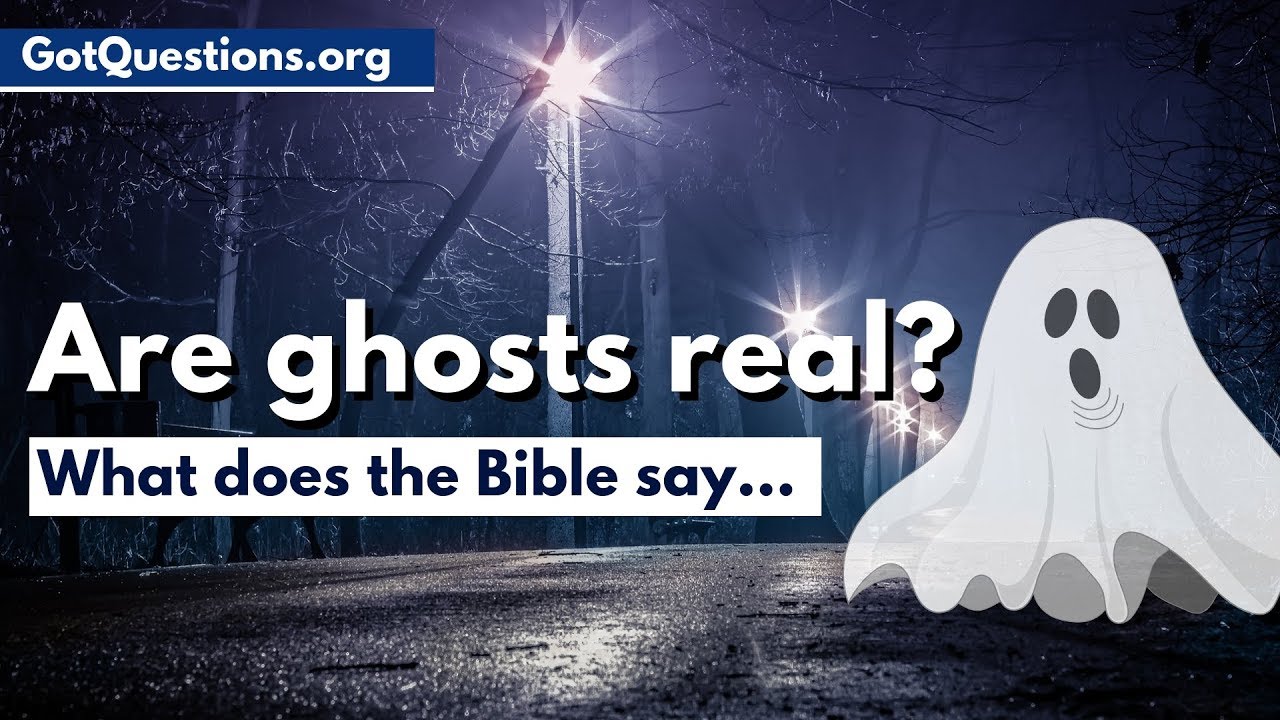Have you ever wondered if the Bible addresses the topic of ghosts? In our quest for spiritual understanding, it’s natural to seek answers from scripture. Exploring this subject can offer insight into the supernatural realm and provide guidance on how to navigate the unseen forces at play in our lives.
This blog post delves into the question, “Does the Bible Say Anything About Ghosts?” By examining relevant verses and interpreting biblical teachings, we aim to shed light on this mysterious and intriguing topic. Whether you’re curious about paranormal phenomena or seeking clarity on spiritual matters, understanding the Bible’s perspective on ghosts can enhance your knowledge and faith journey. Join us as we explore this ancient text and uncover its timeless wisdom regarding the existence and nature of ghosts.
Unveiling the Truth: The Biblical Perspective on Ghosts
There are varying opinions on whether the Bible addresses the topic of ghosts. The concept of ghosts can have different meanings to different people, ranging from the spirits of deceased individuals to supernatural entities.
Some argue that the Bible does mention ghosts in a few instances. For example, in the Old Testament, there is a story in the book of 1 Samuel where King Saul consults a medium to summon the spirit of the deceased prophet Samuel. The medium’s ability to bring forth Samuel’s spirit suggests the existence of ghosts or spirits of the dead.
Additionally, in the New Testament, there are references to Jesus’s disciples mistaking him for a ghost when he walked on water (Matthew 14:26). This passage implies a belief in supernatural entities that could be perceived as ghosts.
However, others interpret these passages differently, suggesting that they do not necessarily support the existence of ghosts as commonly understood. Instead, they argue that these references may be symbolic or metaphorical rather than literal.
In Christian theology, the belief in ghosts is often viewed with caution due to concerns about spiritual deception and the potential influence of malevolent entities. The Bible warns against practices such as necromancy and consulting mediums, suggesting that attempts to communicate with the dead are forbidden.
Overall, the Bible does not provide a clear-cut answer to the question of whether ghosts exist. Interpretations of the relevant passages vary, and individuals may draw different conclusions based on their beliefs and understanding of scripture. Ultimately, the topic of ghosts remains a complex and debated issue within Christian theology.
What does the Bible say about the supernatural?
In the Bible, the supernatural is a complex topic that includes various miracles, signs, wonders, spiritual gifts, and divine interventions. Throughout the Old and New Testaments, the supernatural is portrayed as the power of God at work in the world to reveal His glory, fulfill His purposes, and demonstrate His sovereignty over all creation.
One of the most prominent examples of the supernatural in the Bible is the miracles performed by Jesus Christ during His ministry on Earth. These miracles included healing the sick, raising the dead, walking on water, and multiplying loaves and fishes to feed the crowds. In the Gospel of John, Jesus tells His disciples, “Truly, truly, I say to you, whoever believes in me will also do the works that I do; and greater works than these will he do” (John 14:12).
Additionally, the Bible also describes spiritual gifts such as prophecy, speaking in tongues, and the interpretation of tongues as manifestations of the supernatural power of the Holy Spirit. In 1 Corinthians 12:7-11, the apostle Paul writes, “To each is given the manifestation of the Spirit for the common good… All these are empowered by one and the same Spirit, who apportions to each one individually as he wills.”
Overall, the Bible teaches that the supernatural is a reality that believers can experience and participate in through faith in God and the empowering work of the Holy Spirit. It serves as a reminder of God’s limitless power, His presence in the world, and His desire to reveal Himself to humanity through miraculous signs and wonders.
What does John 15 26 say?
John 15:26 in the Bible says:
“But when the Helper comes, whom I will send to you from the Father, the Spirit of truth who proceeds from the Father, he will bear witness about me.”
What does the Bible say about being ghosted?
The Bible does not specifically mention being ghosted in romantic relationships as we understand it today. However, the Bible does offer guidance on how we should treat others and handle relationships. In Matthew 7:12, Jesus says, “So in everything, do to others what you would have them do to you, for this sums up the Law and the Prophets.” This verse emphasizes the importance of treating others with kindness, respect, and love, even in difficult situations like being ghosted. Additionally, Ephesians 4:32 encourages us to “Be kind and compassionate to one another, forgiving each other, just as in Christ God forgave you.” So, while being ghosted can be hurtful, the Bible teaches us to respond with grace, forgiveness, and love towards others, even when they may have wronged us.
Are spirit and soul the same thing?
In the context of the Bible, spirit and soul are often used interchangeably, but they can also have distinct meanings. The soul is typically understood as the essence of a person, encompassing their mind, will, and emotions. On the other hand, the spirit is often seen as the eternal aspect of a person that connects with God. Some passages in the Bible differentiate between the two, such as Hebrews 4:12 which says, “For the word of God is alive and active. Sharper than any double-edged sword, it penetrates even to dividing soul and spirit, joints and marrow; it judges the thoughts and attitudes of the heart.” Ultimately, while there may be nuances in their meanings, both spirit and soul are integral parts of a person’s being in the biblical context.

